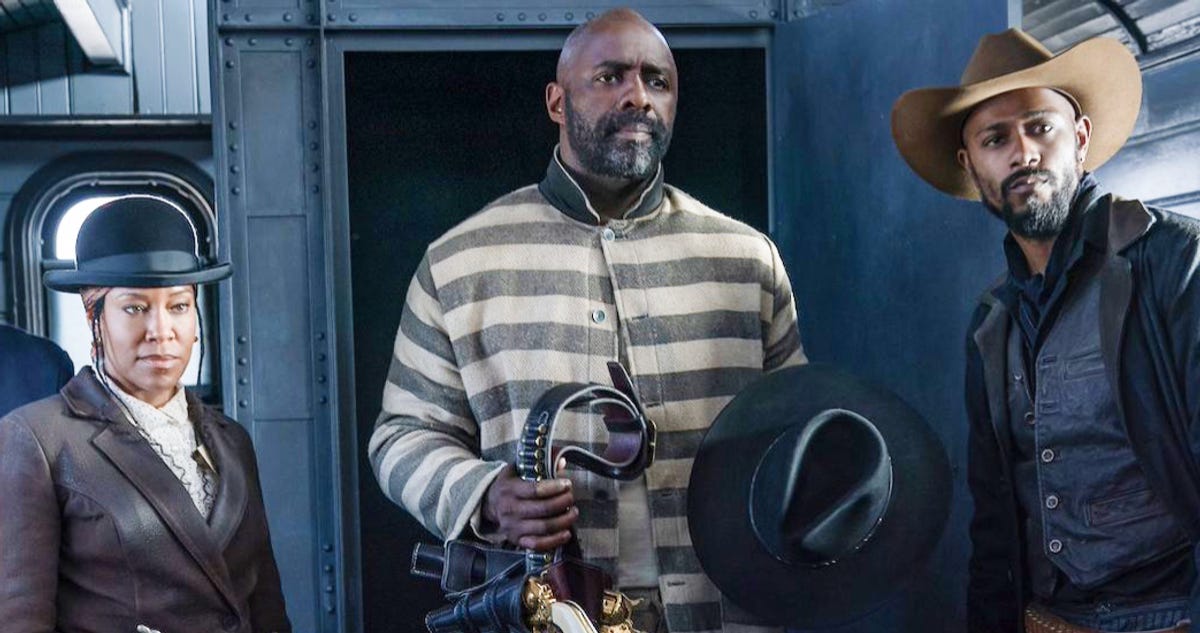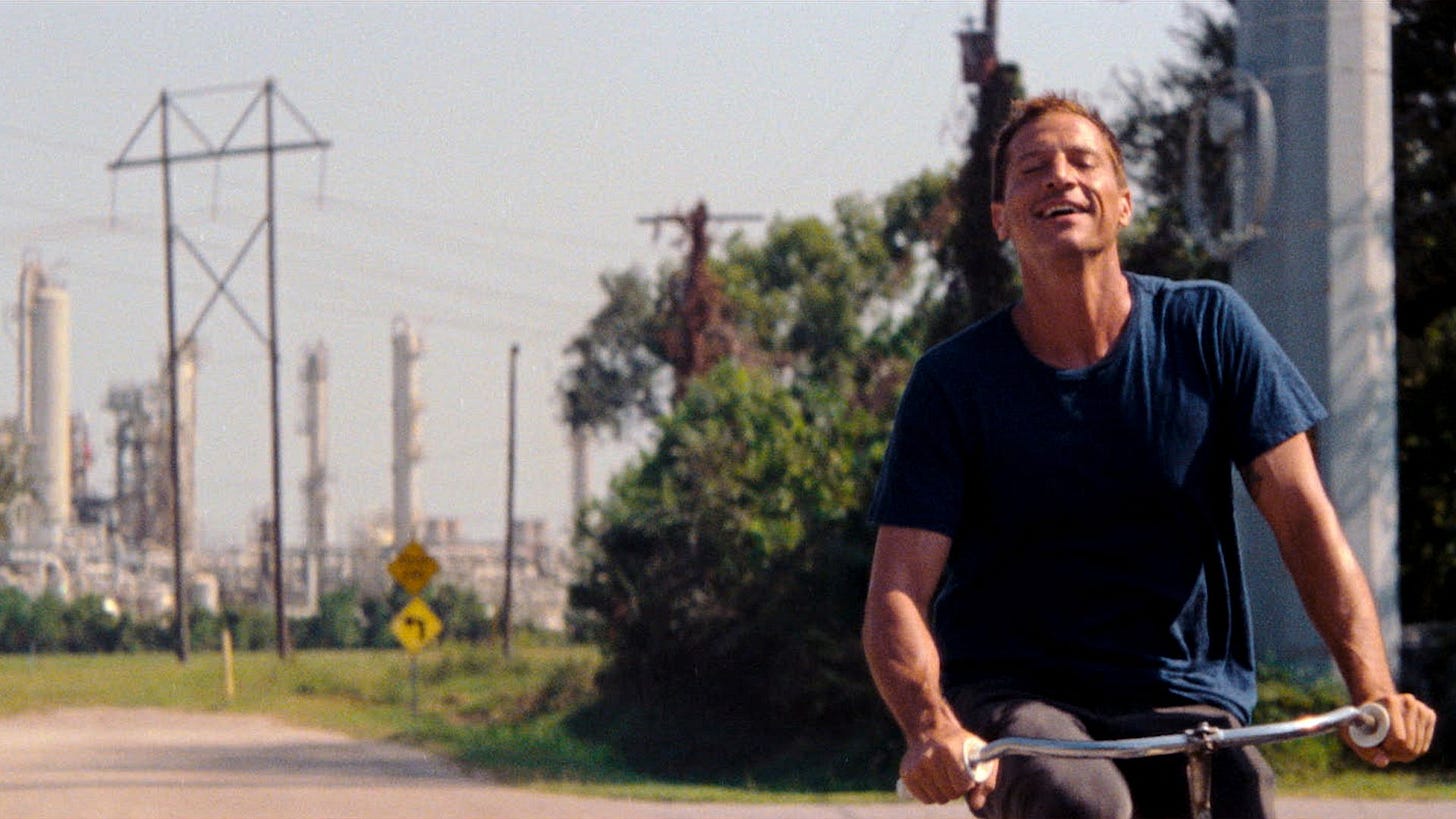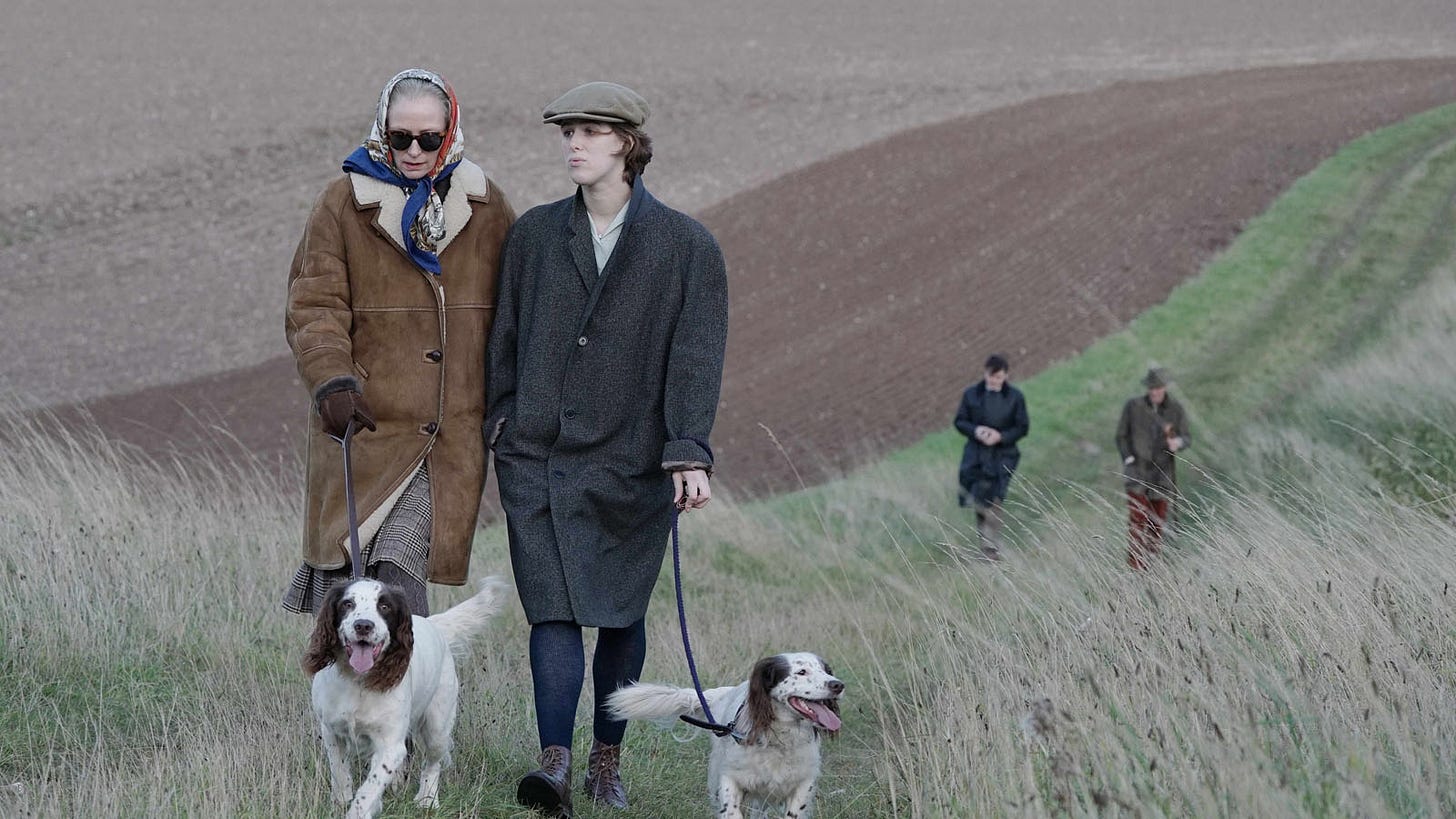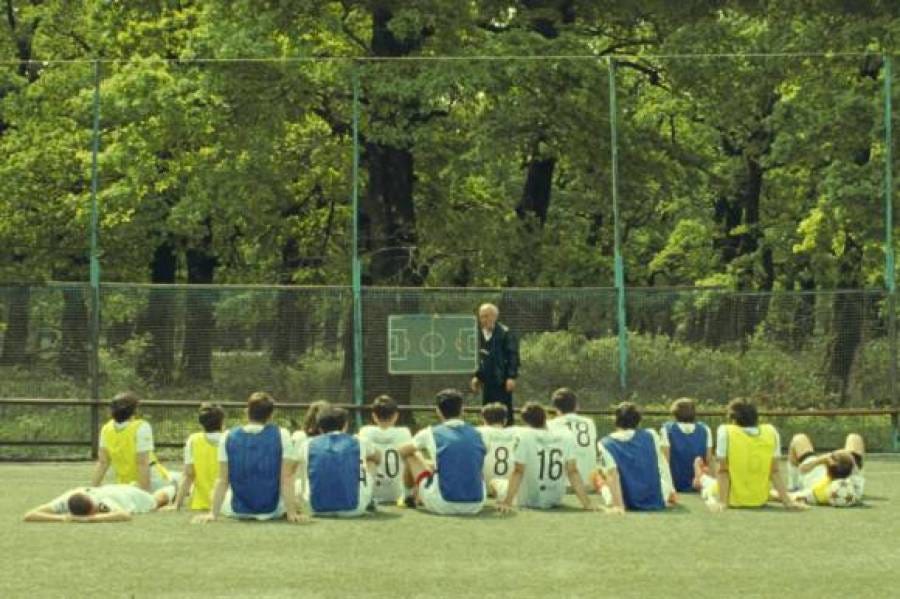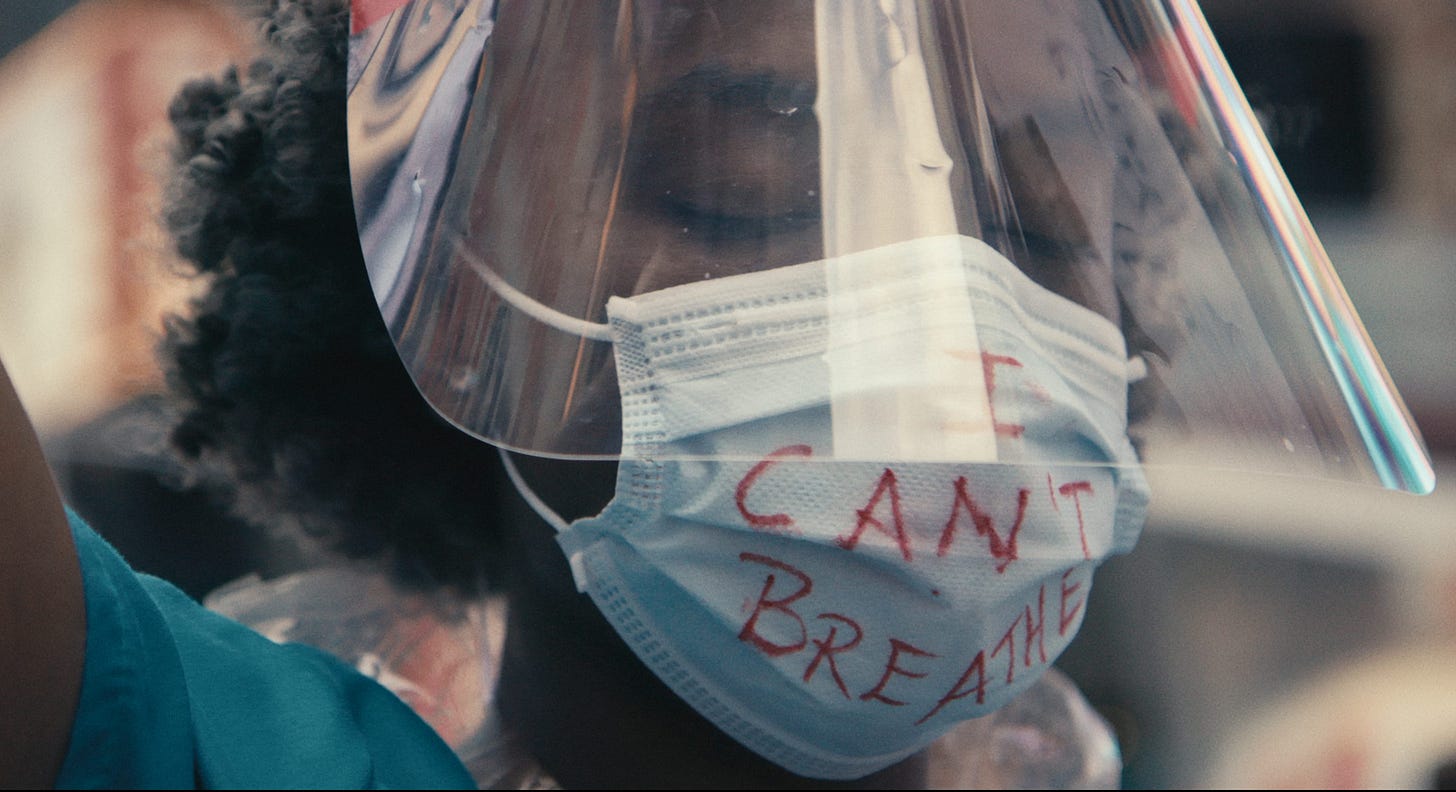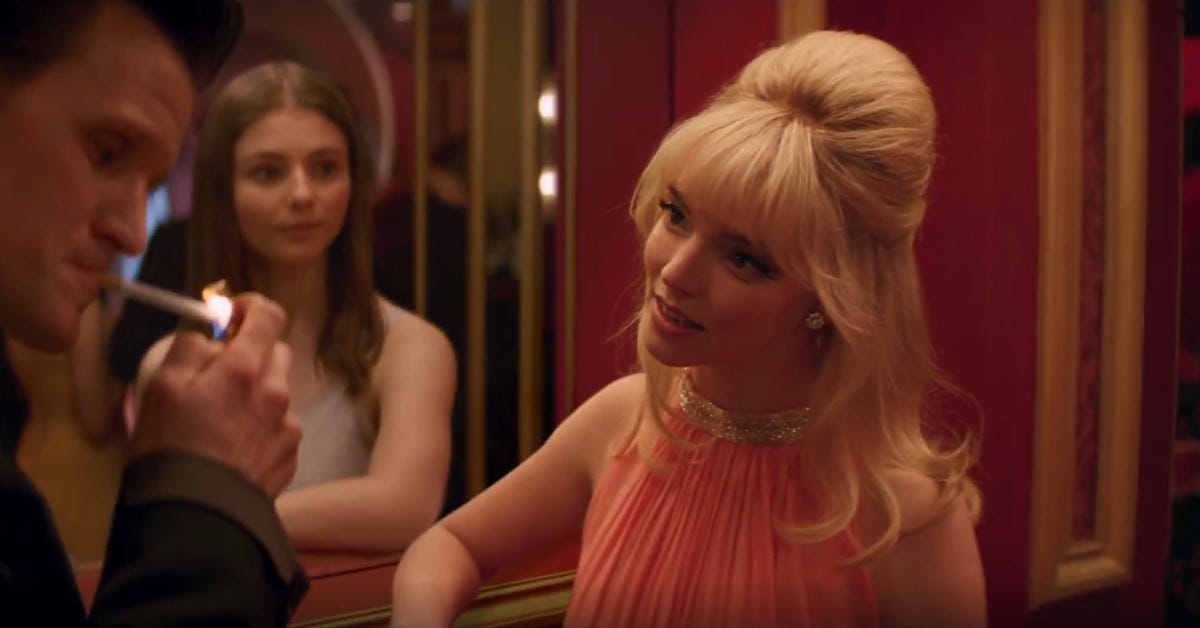Cory's Reads #13: BFI London Film Festival Recap
A rundown of everything I saw at this year's LFF
I first attended a film festival in 2019, when I participated in the Student Symposium at the 46th Telluride Film Festival. It was an incredible experience, an exciting affirmation of my love for film and my passion for the industry surrounding it. I saw some highly memorable films in Telluride, including all-time favorites Parasite and Uncut Gems. I never got a chance to write a full recap of my Telluride experiences, but anyone who I have spoken with in the last two years has likely heard me lovingly rant about the small Colorado mountain town.
Since Telluride, I have worked with the Carnegie Mellon International Film Festival in Pittsburgh, PA (although our 2020 edition was unfortunately canceled due to COVID-19) and have dreamt of a return to that film festival setting.
As luck would have it, my time in the UK has conveniently coincided with the 2021 BFI London Film Festival. In my first visit to The Big Smoke, I was able to see several excellent (and some not-so-excellent) films at the LFF. Watching these movies in packed theaters alongside passionate filmgoers brought me right back to western Colorado, and once again reminded me of why I love film so much.
So, the following is a breakdown of my LFF 2021 experience. As always, thank you for reading, and enjoy.
The Harder They Fall (dir. Jeymes Samuels)
The Harder They Fall arrives on Netflix on November 3rd, but this film was made with a much larger screen in mind. It’s bloody, loud, and bloody. The film’s cartoonish violence makes the gore much easier to stomach, but I was still taken aback at just how much blood director Jeymes Samuels chooses to splatter across every frame.
The latest in a long line of revisionist Neo-Westerns, The Harder They Fall takes a traditional tale of revenge in the Wild West and subverts expectations with an all-Black cast. It’s a progressive and intriguing idea, albeit one that Samuels and co-writer Boaz Yakin largely waste. For as much emphasis as the film places on its Blackness, it is also oddly disinterested in race. While I am wary of suggesting that Black creators need to say anything specific on matters of race, The Harder They Fall seems similarly conflicted. The film flirts with issues of racial tensions, undoubtedly crucial to its late-1800s time period, but stops short of saying anything meaningful. The film further confuses itself and audiences by actively identifying the moments it believes to be subversive via overwritten and downright cringeworthy dialogue. When our main group of Black outlaws arrive in an all-white town to rob the local bank, they call out the town’s bigotry in simply assuming the Black folk have arrived to rob the bank. And yet, that’s exactly what they are there to do? Protagonist Nat Love (Jonathan Majors) derives his namesake from the real-life cowboy/former slave. And yet, the film’s version of Love makes no reference to slavery, and seems to have little in common with his historical counterpart. Again, Black creators needn’t feel compelled to discuss slavery when they don’t want to, but making reference to such an iconic figure without tackling his legacy in any meaningful way remains a rather strange choice.
The Harder They Fall is at its best when it leans into its over-the-top, hyper-stylized action. Clearly influenced by the likes of Quentin Tarantino and Spike Lee, Jeymes Samuels’ direction is relentless. And yet, even that is part of the problem. Samuels struggles to exercise restraint, adorning every scene with a new song, and embellishing every shot by either slowing it down, speeding it up, rotating its angle, etc. The Harder They Fall is hardly a film; it’s more of a music video. Flashy and fun, the movie will almost certainly excel as a Netflix Original, but it doesn’t quite take shape as fully realized Western.
Red Rocket (dir. Sean Baker)
My favorite film of the weekend, Sean Baker’s Red Rocket is the director’s strongest effort yet. That’s considerable praise for a man who has already given us Tangerine and The Florida Project. Red Rocket maintains Baker’s signature sense of compassion, but stretches it to its absolute limit, asking us to put our faith in a washed-up porn star named Mikey Sabre (Simon Rex, a former porn star himself). Baker directs the absolute shit out of this film, pushing his characters to the edge of each frame, and carefully zooming in on them when we (or they) might least expect it.
Of course, none of this works without Rex. Even when Red Rocket first begins (NSYNC’s “Bye Bye Bye” blaring, of course), Mikey seems...suspect. It’s hard to buy into his whole shtick. After all, he’s kind of a piece of shit. He’s back in his hometown of Texas City, begging his estranged wife Lexi (Bree Elrod) for a place to stay. In truth, Mikey still might be a piece of shit by the end of Red Rocket, but he’s one that has unequivocally won us over, more of a symptom of a divided America than a villain unto himself. Navigating the line between anti-hero and asshole is always a difficult one, but Rex handles it with a deftness that even greats like De Niro and DiCaprio have struggled to achieve.
The Souvenir Part II (dir. Joanna Hogg)
It is entirely possible you are unfamiliar with Joanna Hogg’s 2019 drama The Souvenir. It’s not your fault. It is your fault, however, if you do not stop everything you are doing and seek it out. A24 may have botched the film’s marketing, but I am making it my life’s work to promote Hogg’s masterpiece wherever possible. The Souvenir stood on its own as a fascinating interrogation of romance, art, and memory. But Hogg always envisioned the project as a diptych, and so The Souvenir Part II has arrived to complete the narrative arc. Taken together, The Souvenir and its sequel make up one of the most essential works of cinema in recent memory. Partially drawn from Hogg’s own life, the films follow film school student Julie (Honor Swinton-Byrne) as she works on her thesis film. To say The Souvenir and The Souvenir Part II are cases of a “film within a film” is to sell both works short. There are films, and there are many films inside those films. The Souvenir films are deceptively simple coming-of-age tales, but underneath that already powerful layer lies a fragmented exploration of the filmmaking process and the ways in which we choose to author our own lives. The final act of this sequel carries that agenda towards an overwhelming conclusion, one that has lingered and will continue to linger with me for a long, long time.
What Do We See When We Look At The Sky? (dir. Aleksandre Koberidze)
How do you write about a film you barely watched? After stumbling into London’s BFI Southbank just a few minutes late, shuffling past a few less-than-pleased audience members, and plopping into my rigid chair (I never thought I’d miss those multiplex recliners so much), I was finally ready to watch one of my most anticipated films of the festival. And yet, within a matter of moments, I was sound asleep. Over the next two-and-a-half hours (this film is long), I was in and out of this most cerebral of cinematic experiences.
Now, I am an avid defender of sleeping during movies. Just because a film lulls you into a state of rest, doesn’t necessarily mean it was boring or bad. In fact, such effect can be part and parcel of a film’s intent. What Do We See When We Look At The Sky? is the kind of film during which sleep feels like a perfectly reasonable means of engagement. The film wanders and meanders throughout the Georgian city of Kuitasi, straying rather far from its central romance. Director Koberidze ostensibly follows Lisa and Giorgi as they deal with the mythical aftermath of a chance encounter, but he also makes time to follow a local documentary crew, soccer fans throughout the city, and even a couple of stray dogs. It’s a strange potpourri of Georgian culture, and not much of it lands. What Do We See When We Look At The Sky? offers little for viewers to hold onto, replacing any moments of interest with something sudden and new. It’s an ambitious lens through which to explore passion and love, and I certainly admire Koberidze’s poetic tendencies. But What Do We See When We Look At The Sky? is a challenging film in a way that feels almost cloying, rather than enchanting. Perhaps I owe it another viewing, as certain moments still stand out to me as striking and innovative, but it certainly wasn’t the cinematic achievement I’d hoped it might be.
The First Wave (dir. Matthew Heineman)
Throughout the COVID-19 pandemic, I’ve lamented the nature of American media coverage, boiling so much human loss down to raw data and partisan debate. And yet, in watching the international premiere of Matthew Heineman’s The First Wave, I couldn’t help but feel that such intimate focus on the pandemic and those affected by it was ultimately unnecessary, perhaps even inappropriate. It’s a difficult dilemma to unravel. I remain insistent that Americans (and indeed, global citizens) should be privy to the painful reality of the pandemic, but I also wouldn’t blame viewers for steering clear of a film like The First Wave, and choosing not to subject themselves to such visceral footage of dying patients, crying doctors, and grieving family members.
The First Wave limits its focus to the initial outbreak of COVID-19 in New York City from March-June 2020. Thus, its purview includes the nationwide Black Lives Matter protests in the wake of George Floyd’s murder, and the film is at its best when Dr. Nathalie Douge (the closest thing The First Wave has to a protagonist) participates in these protests and weaves together her experiences in Long Island Jewish Medical Center in Queens with her experiences marching through the streets of Manhattan. But Heineman also makes a strange decision to use former NY Governor Andrew Cuomo’s speeches as a sort of framing device throughout the film. Cuomo periodically checks in with an update on the status of COVID-19 in New York, and his words are meant to evoke the same stirring sense of compassion and camaraderie that they elicited over a year ago. Of course, Cuomo’s speeches haven’t aged well. Not only did a history of sexual harassment lead to the governor’s removal from office, but Cuomo’s actual handling of the pandemic at hand proved to be both irresponsible and disastrous. In his Q&A after the screening, Heineman suggested that The First Wave is an apolitical film, and that he took care to avoid any mention of “that guy.”
(You know, the orange one.)
But Heineman consequently struggled to reconcile this assertion with Cuomo’s presence in The First Wave. He justified the Cuomo speeches by saying they were simply representative of New York City at the time, but wouldn’t the same apply to Cuomo’s coverup of nursing home deaths, or his employment of prison labor in mass-producing hand sanitizer? Heineman’s omission of these events is a political decision, and a poor one at that. While I can theoretically appreciate the desire to discuss the COVID-19 pandemic in apolitical terms, doing so is nearly impossible. It is a political event, and any films about it are political films. Let’s hope we get some better ones moving forward.
Last Night In Soho (dir. Edgar Wright)
Imagine watching Edgar Wright’s latest film Last Night In Soho, and it actually being your last night in Soho. Crazy, right?
Indeed, watching Last Night In Soho in a packed theater in London was an unforgettable experience. Wright’s films are always humorous affairs, but much of the comedy in this one is rather “inside baseball” for the London crowd. Most of it went over my head, but the crowd couldn’t get enough. Jokes aside, recognizing various London landmarks made this one a unique theatrical experience. Of course, the film is pretty great too. You could certainly quibble over many of its convoluted plot points, but Wright’s trademark sense of fun is in full effect here, convincing even this cinematic stickler to look past all the narrative contradictions and inconsistencies. Last Night In Soho is suspenseful, thought-provoking, and surprisingly scary! Thomasin Harcourt McKenzie and Anya Taylor-Joy each pull their weight, and form one of the more exciting lead duos of the year. I also had no idea going in to this film that it marked the final performance from the late, great Diana Rigg. And what a way to go out!
That does it for my time at the 2021 London Film Festival. I missed out on a few highly anticipated films, including Pablo Larrain’s Spencer and Wes Anderson’s The French Dispatch. I also opted not to revisit Julia Ducournau’s Titane, as I had already seen its deliciously disgusting body horror play out in Amsterdam a month prior. I highly recommend the latter film. It is likely my favorite of the year. Just prepare your stomach to handle it.
As always, thank you for reading. Until next time...




